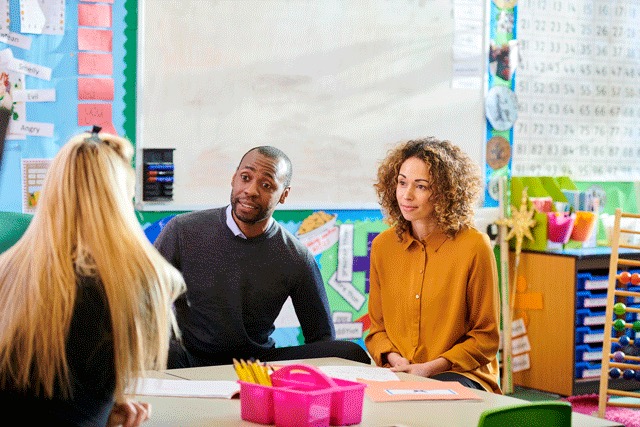IEL Resources
Tip Sheets
Podcasts

This list contains a variety of resources which can aid teachers and caregivers with how to best communicate with parents during difficult situations.
Tip Sheets
Podcasts
This article provides twenty tips for improving connections with parents and families.
This professional development module provides videos and other training materials to promote trusting partnerships with families.
This article goes over effective strategies for teachers to connect with families including sharing specific concerns, building trust, and moving forward.
This short article discusses three key steps to take after discussing difficult topics with parents.
This article provides strategies for new teachers in their meetings and conversations with families including being proactive, asking parents for advice, and more.
This offers questions and answers that can help you to get the most out of talking to your child’s teacher or with other school staff members.
This short article for educators provides ideas on how to plan and prepare to discuss sensitive issues with families and open the door to conversation.
This article provides specific tips for communicating concerns with parents.
This short article provides a sample parent-teacher conversation and some tips for having difficult conversations with parents.
This article, written by a parent of a child with a disability, describes common reactions to learning that your child has a disability.